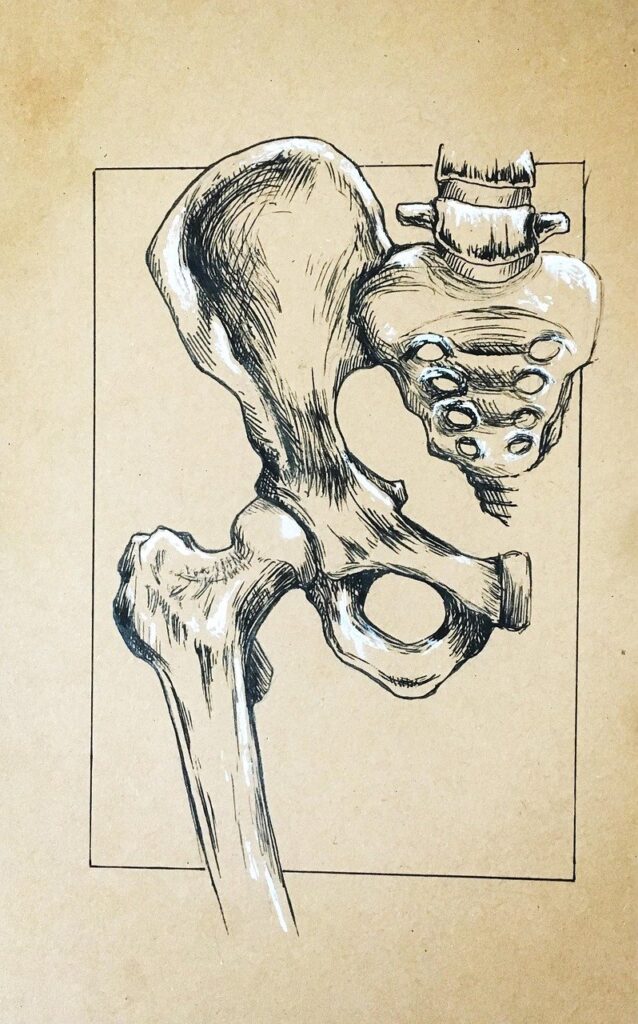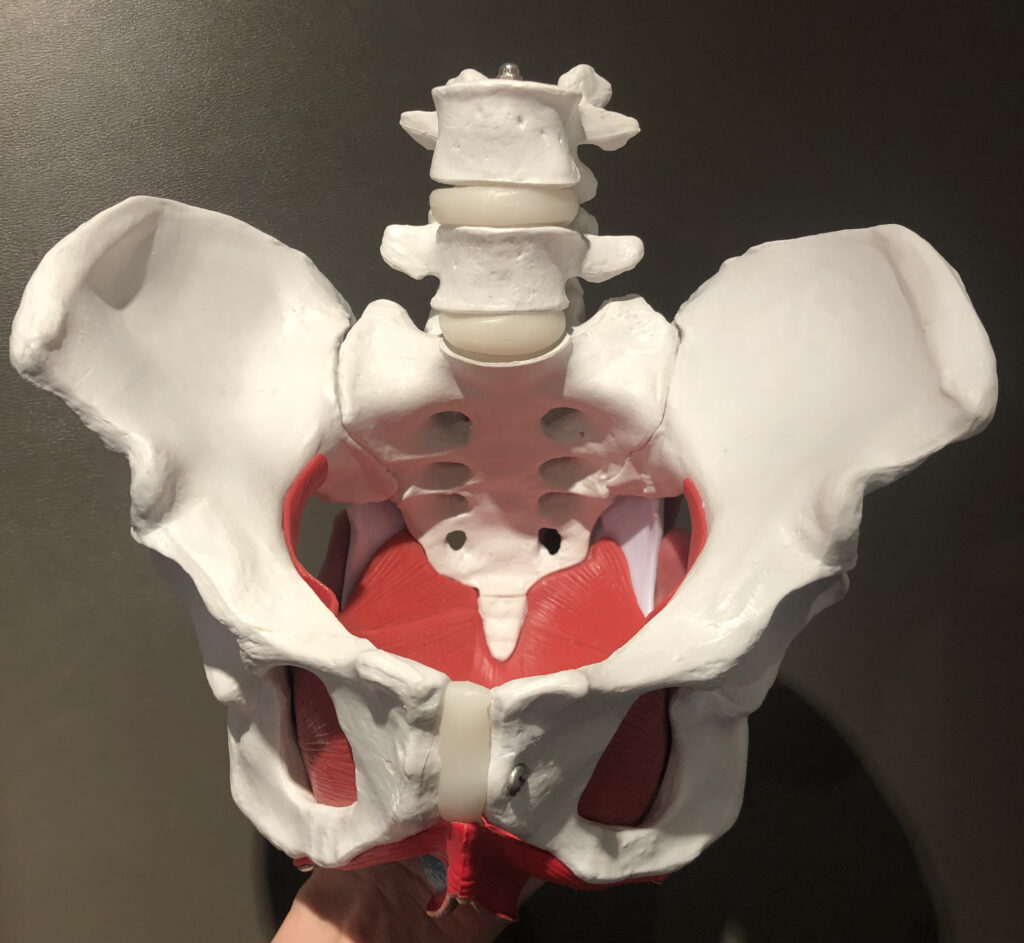What is pelvic physiotherapy?

Pelvic health physiotherapy, also referred to as pelvic floor physiotherapy, consists of the assessment and treatment of a variety of conditions in which the muscles of the pelvic floor play an important role. These conditions are wide-ranging and can occur across all ages and genders. A few of the most common conditions that can benefit from pelvic floor physiotherapy include:
- low-back, pelvic, or hip pain
- urinary or faecal incontinence (leaking with coughing, sneezing, or jumping, or not being able to make it to the toilet in time)
- chronic constipation or difficulty voiding
- problems related to the menstrual cycle (including endometriosis)
- dyspareunia (pain with intercourse)
- painful scars in the pelvic region, such as those associated with surgery or childbirth
- pelvic organ prolapse
- diastasis rectus abdominis
- pregnancy and postpartum
In order to better assess the structures of the pelvic floor, pelvic health physiotherapists have additional training allowing them to palpate the structures of the pelvic floor through internal assessments and treatments. These internal assessments and treatments can be performed vaginally and/or rectally. Your pelvic health physiotherapist may recommend internal work, but it is always your choice whether or not you would like to be assessed and treated in this manner.
What does pelvic physiotherapy at Nurtured Wellness look like?
I aim to provide holistic care in which the pelvic floor is considered within the context of your life. With that in mind, our work together may involve:
- exploring breathing patterns and playing with different breathing exercises
- experimenting with habit shifts (for instance, around diet, fluid consumption, voiding habits, sleep, physical activity, etc.)
- using sensory input to increase awareness of specific areas
- using targeted exercises to increase mobility, strength, or coordination of the pelvic floor muscles
- playing with mindful movement and/or relaxation practices
An important part of our work together involves ensuring you feel comfortable during your physio care and with any recommended home practices. Your expert knowledge of your body (and life) is very welcome!

